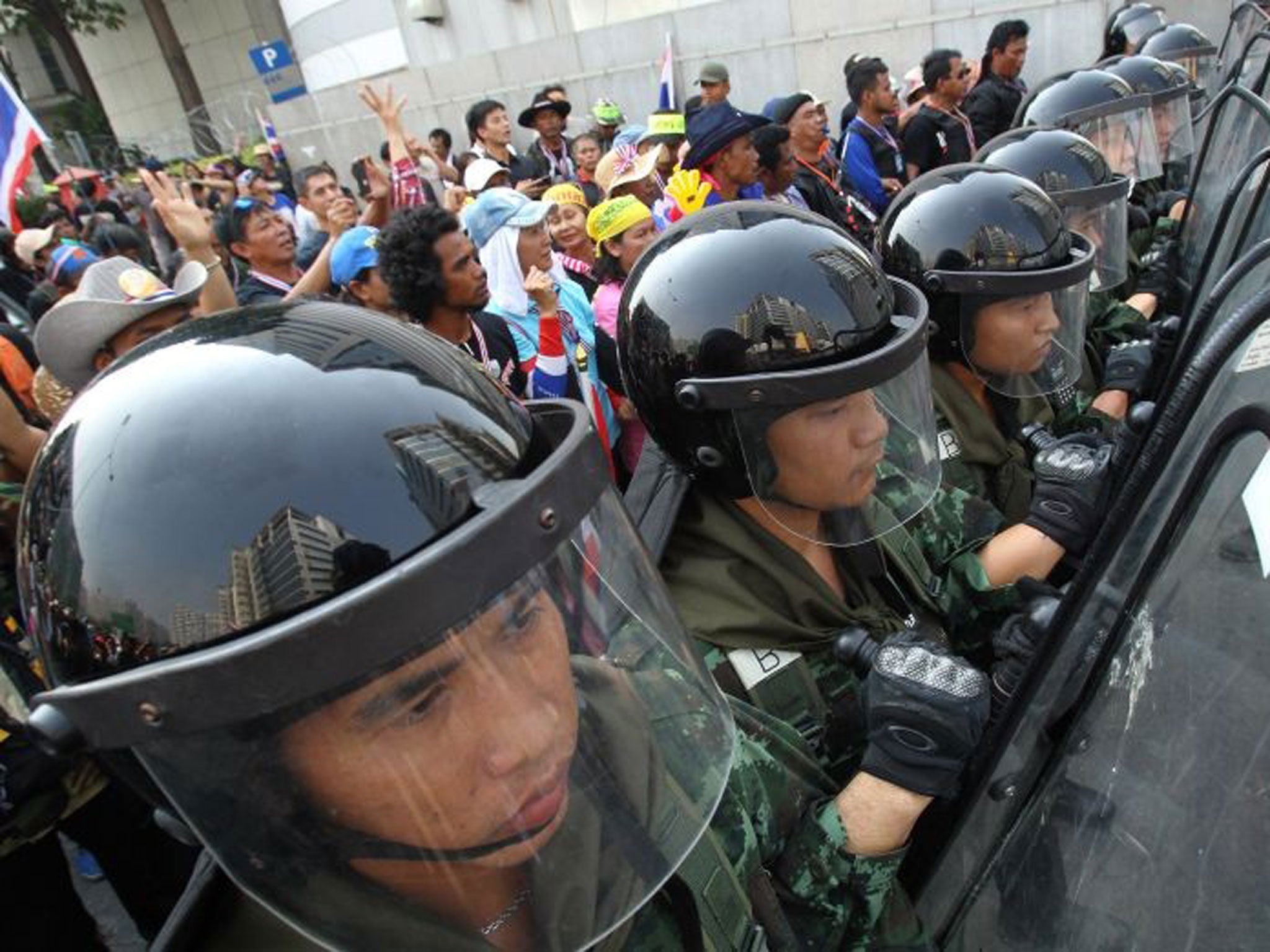Thailand protests: Anti-government activists turn to the courts to thwart elections

Your support helps us to tell the story
From reproductive rights to climate change to Big Tech, The Independent is on the ground when the story is developing. Whether it's investigating the financials of Elon Musk's pro-Trump PAC or producing our latest documentary, 'The A Word', which shines a light on the American women fighting for reproductive rights, we know how important it is to parse out the facts from the messaging.
At such a critical moment in US history, we need reporters on the ground. Your donation allows us to keep sending journalists to speak to both sides of the story.
The Independent is trusted by Americans across the entire political spectrum. And unlike many other quality news outlets, we choose not to lock Americans out of our reporting and analysis with paywalls. We believe quality journalism should be available to everyone, paid for by those who can afford it.
Your support makes all the difference.Thai anti-government protesters have vowed to push ahead in their efforts to nullify the results of elections.
Despite fears of violence, voting proceeded peacefully in 90 per cent of polling stations on Sunday. But anti-government protesters forced polling booths to close in Bangkok and southern Thailand, disenfranchising millions of registered voters.
As a result, not all parliament seats will be filled, and a series of by-elections is required to complete voting, extending political paralysis for months.
Protesters say they will fight the election results on several grounds, including the fact that it is required by law for polls to be held on one day. The opposition Democrat Party, which backs the protesters and boycotted the vote, said yesterday it was studying other legal justifications to invalidate the results.
The struggle to hold the polls was part of a three-month-old conflict that has split the country between supporters of the Prime Minister, Yingluck Shinawatra, and opponents who allege that her government is too corrupt to rule.
Demonstrators have occupied major junctions in Bangkok and forced government ministries to shut down and work elsewhere.
“We are not giving up the fight,” said one protest leader, Suthep Thaugsuban. “Our mission is to keep shutting down government offices.”
The activists are demanding the government be replaced by an unelected council that would rewrite electoral laws to combat deep-seated problems of corruption. Ms Yingluck has refused to step down, arguing she is open to reform, but that such a council would be unconstitutional and undemocratic.
The protesters are a minority that cannot win through elections, but they comprise a formidable alliance of opposition leaders, royalists, and businessmen who have set their sights on ousting the government. They have won past battles – by deposing Yingluck’s brother, former premier Thaksin Shinawatra, in a 2006 army coup, and by forcing out two Thaksin-allied ministers through controversial legal rulings.
AP
Join our commenting forum
Join thought-provoking conversations, follow other Independent readers and see their replies
Comments